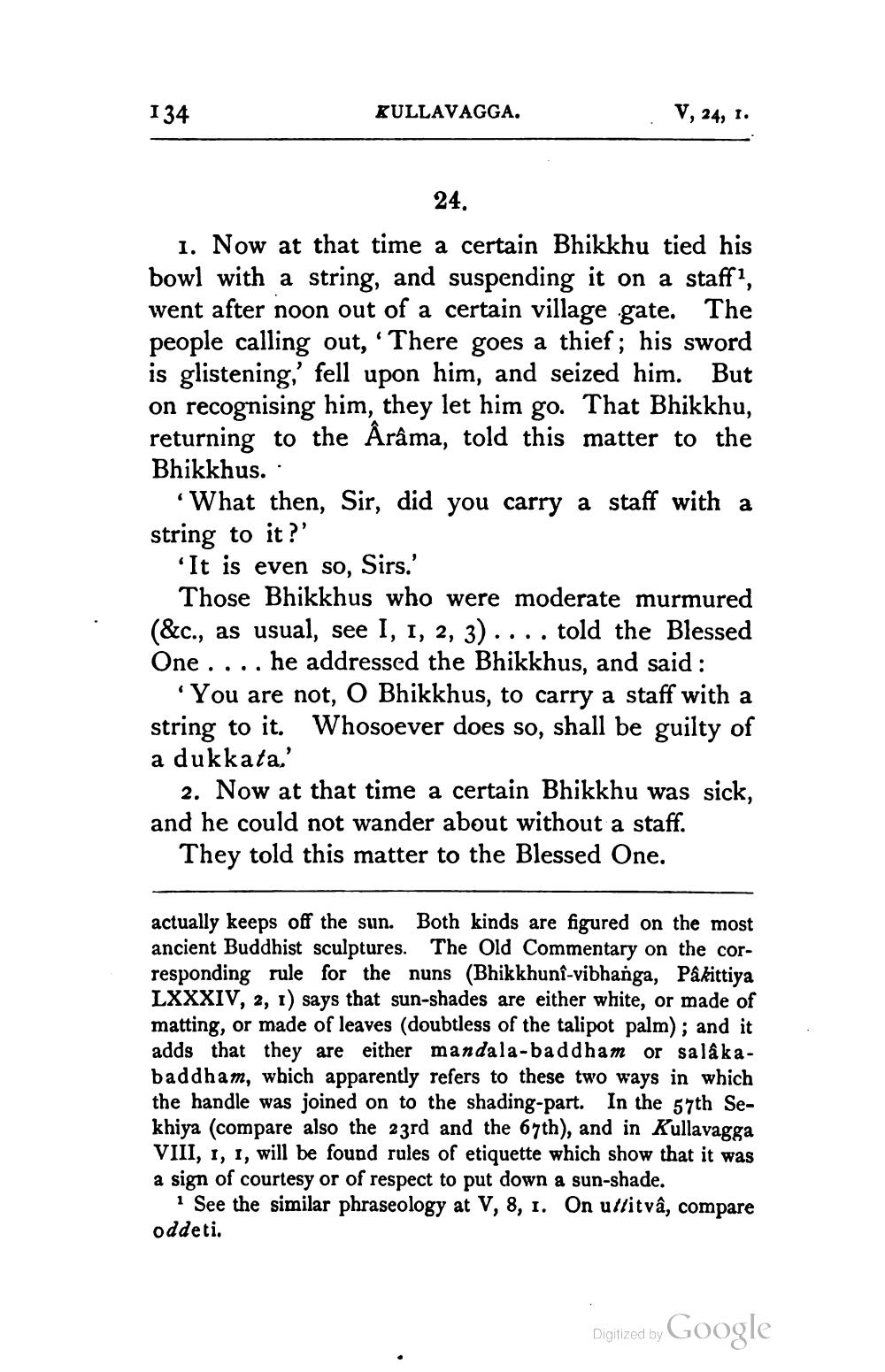________________
1 34
KULLAVAGGA.
V, 24, 1.
24,
1. Now at that time a certain Bhikkhu tied his bowl with a string, and suspending it on a staff, went after noon out of a certain village gate. The people calling out, 'There goes a thief; his sword is glistening,' fell upon him, and seized him. But on recognising him, they let him go. That Bhikkhu, returning to the Arâma, told this matter to the Bhikkhus. :
What then, Sir, did you carry a staff with a string to it?' "It is even so, Sirs.
Those Bhikkhus who were moderate murmured (&c., as usual, see I, 1, 2, 3).... told the Blessed One .... he addressed the Bhikkhus, and said :
You are not, O Bhikkhus, to carry a staff with a string to it. Whosoever does so, shall be guilty of a dukkata.'
2. Now at that time a certain Bhikkhu was sick, and he could not wander about without a staff.
They told this matter to the Blessed One.
actually keeps off the sun. Both kinds are figured on the most ancient Buddhist sculptures. The Old Commentary on the corresponding rule for the nuns (Bhikkhunî-vibhanga, Pâkittiya LXXXIV, 2, 1) says that sun-shades are either white, or made of matting, or made of leaves (doubtless of the talipot palm); and it adds that they are either mandala-baddham or salaka - baddham, which apparently refers to these two ways in which the handle was joined on to the shading-part. In the 57th Sekhiya (compare also the 23rd and the 67th), and in Kullavagga VIII, 1, 1, will be found rules of etiquette which show that it was a sign of courtesy or of respect to put down a sun-shade.
See the similar phraseology at V, 8, 1. On ullitva, compare oddeti.
Digitized by
Digilzed by Google




